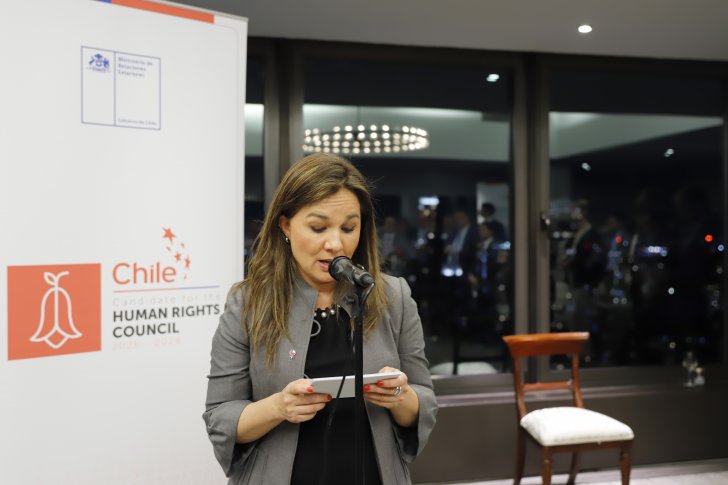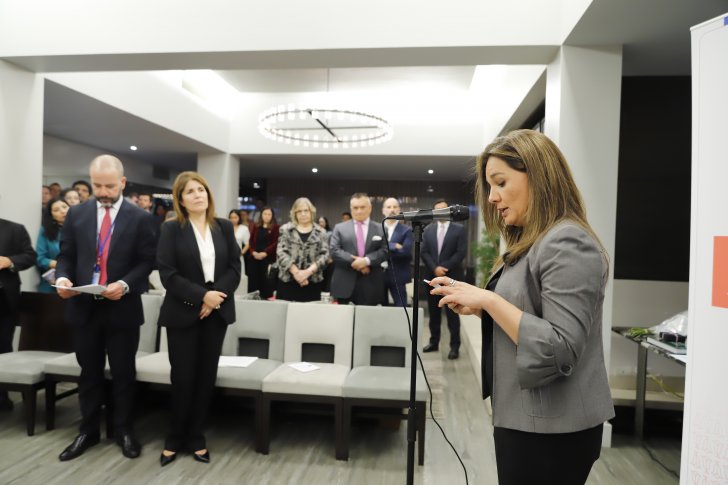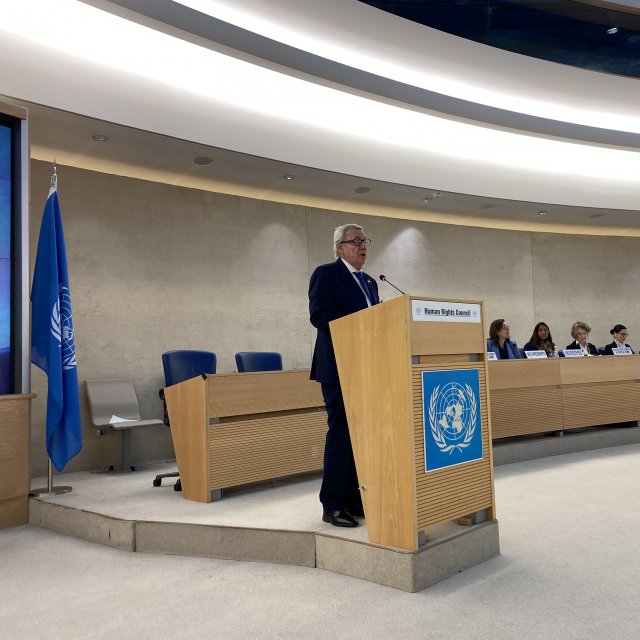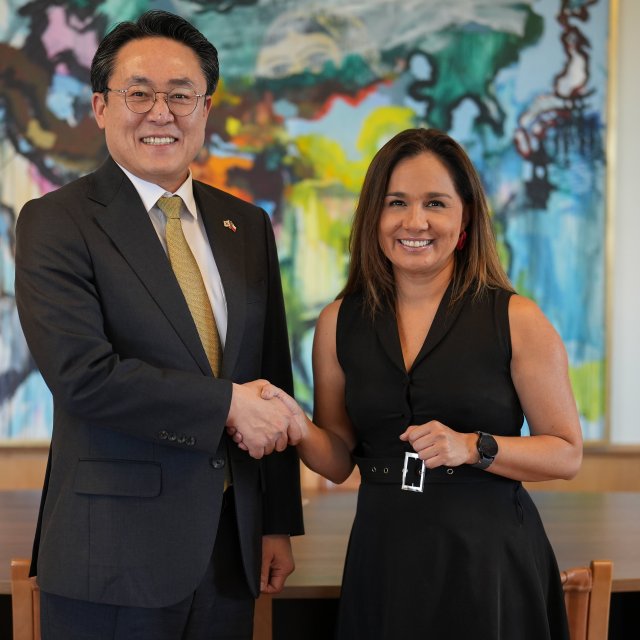 Thursday, February 27th 2025
Undersecretary meets with the Minister of Oceans and Fisheries of the Republic of Korea
Thursday, February 27th 2025
Undersecretary meets with the Minister of Oceans and Fisheries of the Republic of Korea
Chile launches candidacy for re-election to the UN Human Rights Council
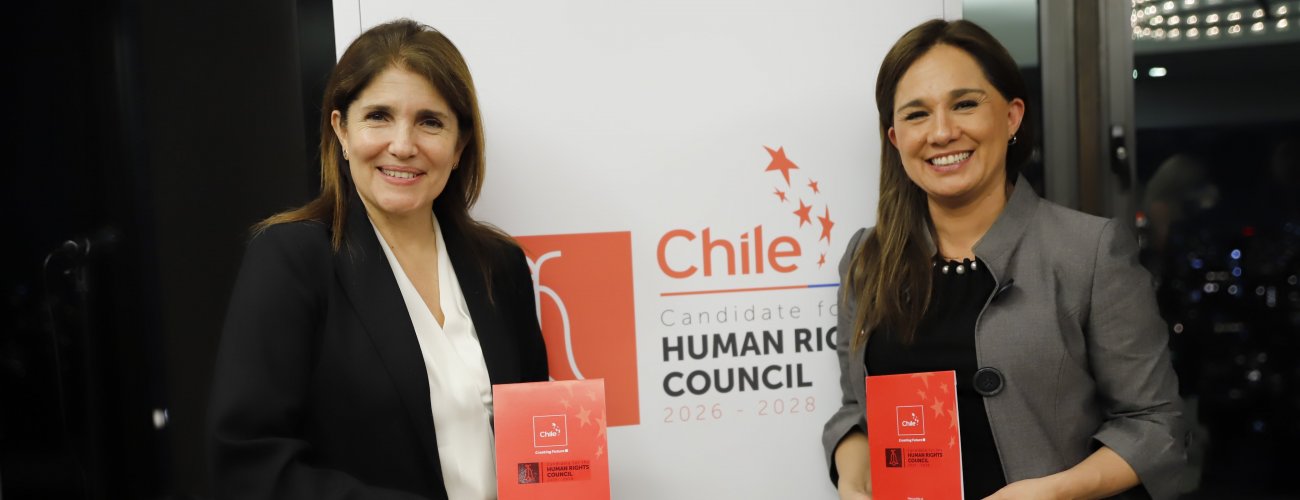
At a reception at the residence of the Chilean Ambassador to the United Nations, Paula Narváez; the Undersecretary of Foreign Affairs, Gloria de la Fuente, launched Chile's candidacy for re-election as a member of the UN Human Rights Council for the 2026-2028 period.
The event in New York, where UN Member States were invited, was attended by representatives of more than a hundred countries, who will participate in the election for which Chile is a candidate, to be held during the 80th session of the UN General Assembly.
“Chile believes in multilateralism and international human rights institutions because we have been able to experience firsthand the role that international cooperation and solidarity can play in putting an end to human rights violations, advancing truth and justice, and making reparations to the victims of these serious crimes”, said the Undersecretary.
“We are convinced that being a member of the Human Rights Council is a great responsibility, as it gives Member States the possibility of having a decisive role in the discussion and establishment of initiatives for the promotion and protection of human rights around the world,” she added.
Since the establishment of the Human Rights Council, Chile has been a member on four occasions: 2009-2011, 2012-2014, 2018-2020 and 2023-2025, during these occasions it has fostered a constructive dialogue based on the international obligations derived from human rights instruments, supporting the independent and technical work of the Office of the United Nations High Commissioner for Human Rights.
Upon presenting its candidacy, Chile has established a series of commitments, both to promote respect for human rights in the country and in the rest of the international community.
The Human Rights Council
The Council is integrated by 47 member states, which are elected by a majority of the members of the United Nations General Assembly through direct and secret ballot.
However, the membership of the Council is based on equitable geographical distribution, with seats distributed as follows:
- African States: 13 seats
- Asia and Pacific States: 13 seats
- Latin America and the Caribbean: 8 seats
- Western European and other States: 7 seats
- Eastern European States: 6 seats
Related articles
 Thursday, February 27th 2025
Undersecretary meets with the Minister of Oceans and Fisheries of the Republic of Korea
Thursday, February 27th 2025
Undersecretary meets with the Minister of Oceans and Fisheries of the Republic of Korea
 Monday, February 24th 2025
Minister van Klaveren reaffirms Chile's commitment to human rights and gender equality
Monday, February 24th 2025
Minister van Klaveren reaffirms Chile's commitment to human rights and gender equality







